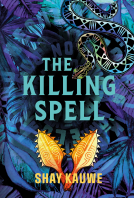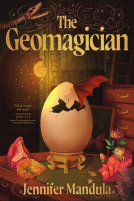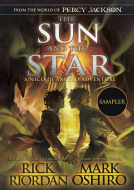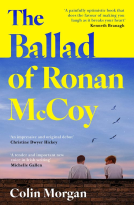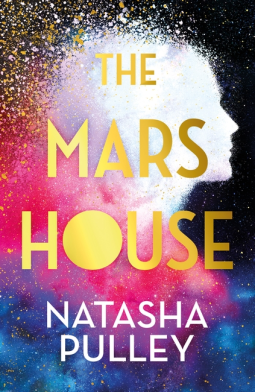
The Mars House
A BBC Radio 2 Book Club Pick
by Natasha Pulley
This title was previously available on NetGalley and is now archived.
Send NetGalley books directly to your Kindle or Kindle app
1
To read on a Kindle or Kindle app, please add kindle@netgalley.com as an approved email address to receive files in your Amazon account. Click here for step-by-step instructions.
2
Also find your Kindle email address within your Amazon account, and enter it here.
Pub Date 19 Mar 2024 | Archive Date 29 Mar 2024
Orion Publishing Group | Gollancz
Talking about this book? Use #TheMarsHouse #NetGalley. More hashtag tips!
Description
When an apocalyptic dust storm engulfs Mars, cutting off power to the capital, a refugee and a politician must find a way to make the PR stunt that is their hastily arranged marriage work in order to save the planet.
In the wake of an environmental catastrophe, January, once a principal dancer in London’s Royal Ballet, has become a refugee on Mars. Things are different here – the main language is Mandarin, the gravity is extremely confusing, and gender was abolished decades ago.
When Aubrey Gale, a trillionaire turned politician, decides that all humans need to be naturalised to assimilate to life on Mars, January’s life is thrown into chaos. A chance encounter plunges Aubrey and Gale into the national limelight and they are forced into a five-year made-for-the-press marriage that will secure January’s future and ensure Gale’s political success.
As their romantic relationship develops, political tensions continue to deepen, threatening to destroy Mars. It is now up to January and Aubrey to make the decision that will determine the future.
Timely and utterly unputdownable, The Mars House
is an exceptional genre-blending romance, exploring
climate collapse, class privilege, and queer love.
Advance Praise
‘Finished The Mars House by Natasha Pulley. We’re talking total Pulley. 100% Pulley. Pulley writing magic lavished on a totally Pulley plot. I’ve never known anybody to pack so many ideas so elegantly into a novel. Brilliant as usual, but – more importantly – pure Pulley’ Stuart Turton, Costa Book Award-winning author of million-copy bestseller The Seven Deaths of Evelyn Hardcastle
‘Now. Natasha Pulley is already a hard favourite of mine. She’s so clever and has an imagination that’s so vast that it’s just not fair on the rest of us mere mortals. But this new one is a work of staggering genius beyond even the others' Imran Mahmood, CWA Gold Dagger and Theakstons-longlisted author of Netflix smash hit You Don’t Know Me
‘Natasha Pulley is in a class of her own – The Mars House is a tour de force, melding extra-terrestrial colonisation, inter-planetary politics, ballet and mammoths with her uniquely witty style. An early contender for the best book of 2024!’ Cailean Steed, Pen to Print Award-winning author of Home
‘Few writers combine such warmth and heart with such consummate skill as Natasha Pulley. She sends the reader out into the skies, and deep into themselves, places we never knew we could travel. Reading her is both a joyful and profound experience – and The Mars House is her most daring, ambitious, and exciting book yet’ Catriona Ward, Sunday Times-bestselling author of The Last House on Needless Street
‘Simply unputdownable – hilarious, ingenious, and full of warmth, The Mars House asks important questions about what it means to be human, and doesn’t shy away from nuanced conversations about immigration, climate breakdown, and augmented reality. Plus it has talking mammoths and a very clever twist. What’s not to love?’ Thomas D Lee, Sunday Times-bestselling author of Perilous Times
‘This book swallowed me whole and refused to let me go for 4 days… This is a book about language, how new society subcultures form, gender, mammoths, and space… I want to live inside Natasha Pulley’s brain – and I would happily read a thousand more pages set on Mars. The incredible arranged marriage queer romance was just an added bonus. Book of the year for me’ Lauren James, Carnegie-shortlisted author of The Quiet at the End of the World and founder of the Climate Fiction Writers League
Available Editions
| EDITION | Other Format |
| ISBN | 9781399618533 |
| PRICE | £20.00 (GBP) |
| PAGES | 432 |
Available on NetGalley
Average rating from 61 members
Featured Reviews
Rescued from a now underwater London, January is offered refuse on Mars. The gravity there means that he is much stronger than the locals and best suited to factory work. It’s a long way from the glamour of the London stage, but at least it’s a living. That is until he says the wrong thing to the wrong person and his second chance is yanked out from under him. Could he possibly be lucky enough to get a third?
As usual, Natasha Pulley has pulled an absolute success from the depths of her wondrous imagination. She has managed to build a whole new culture, with a whole new set rules, whilst still keeping her characters impressively relatable. And what characters they are: no stereotypes welcome here! January is a conflicting character with both soft and hard edges to him. He can give and take an insult as easily as anyone, yet is the first to step in whenever he senses even a hint of vulnerability in someone else. What is most impressive is the adaptability that both Gale and January portray, both able to meld completely into new situations without ever losing their own identities.
For the first few chapters I wasn’t really sure where the plot was going to go. However, this didn’t stop me from being fully engaged with every page. In fact it actually added to my enjoyment, letting me immerse myself in this new world without any pressures of an intense plot. By the time the main angles of the plot did begin to appear, I was fully invested in the characters: they could have done anything and I would have loved them for it. Fortunately, what they did do was fully loveable in its own right. Throughout, this book kept me enraptured with its intoxicating mix of political intrigue, mystery, romance, betrayal, and different people pulling together in hard times.
Fanfic writing and literary teamed up for The Mars House where politics and fake marriage from Winter’s Orbit meet the warning about our current world from To Paradise.
Imagine. A flooded London. The Chinese saving the British. Saudi Arabia turning back refugee boats from the UK. A Chinese colony on Mars. Special train carriages, special houses, special entrances, and so on for so-called Earthstrongers (people from Earth). Forcing people to change because of how they’re born. Gender Abolition. Imagine. And think.
Natasha Pulley’s writing is always elusive. Not much seems to be happening, and still, you feel the uneasiness below the surface in every word and every sentence. You’re waiting to peel off layer by layer, to find snippets of information to help you lose that turmoil in your body, but instead, your radar starts whirling, and you might think you’re going mad. As a reader, it makes you extremely frantic because what if you’re missing something essential? So, The Mars House started in slow motion, with numerous footnotes, and it made me read even more slowly. And at the same time, the story gripped me because I instantly felt the social importance of this book. It’s an apparent reference to the world we’re living in right now, with climate change and populism and excluding others.
There’s always a slow-slow-slow-burn love story in Natasha’s novels between two traumatized people. The fake marriage between January and Gale is no different. Starting as magnets with their repelling poles pointed at each other—January hates everything Gale thinks, and Gale hates everything January is—eventually, they start teasing and grinning and suddenly having rather normal conversations. Everything seems to be fine (except for Gale’s political positions), and even I, a huge Natasha Pulley fan, started to wonder if this book would be anything like her other books. But my heart opened up for Gale and January, oh sweet January, and warmth slid inside my body, and small smiles tilted up my lips while, at other times, chills started to creep up my arms, and I was reading faster and faster, and ... About halfway through the novel, I had an inkling and … sorry, I’m saying no more. Only … mammoths (movie-like!)… and know my inkling was correct!
If you haven’t read anything by Natasha Pulley yet, I’m not sure if you should start with this one. On the other hand, none of them might seem to be the best to begin with. They all give you doubt and confusion and furrowed brows. The most important thing is to just surrender to her storytelling and not quit when you feel bored or utterly confused. The pacing in her books is slow, especially in the first part, but eventually, the story will unfold itself, and suddenly you understand why so many readers are Natasha Pulley stans!
And now I want that sequel to Valery K Natasha was talking about on Twitter! Publishers, do you hear me? US READERS NEED THAT SEQUEL DESPERATELY!!
Actual rating 4.5 stars rounded up to five.
 Leonie f, Librarian
Leonie f, Librarian
Thank you to Orion and Netgalley for the chance to read this. First of all, I am a Natasha Pulley fan. I’ve read all their books and adored many of her characters. Even though this one is set in the future, it is still solidly one of their books - the writing is beautiful, crisp and precise, the characters bleed off the pages and into the reader’s mind (and heart).
Here there lies an epic slo-burn romance, political shenanigans, hideous bigotry and a convoluted plot that touches on so many issues that beleaguer our current world - all done without any ranting or raging. I could have done without one flashback, as I thought it unnecessary, but otherwise I was utterly engaged. I loved the dance, the Houses, the angst, the mammoths (❤️) and most of all, damaged January, who deserves happiness.
 Reviewer 575863
Reviewer 575863
I loved The Mars House!
I had never heard of this book or author before but I had to request to read it when I saw what it was about and I'm so happy I did!
I'm also definitely going to be checking out more of Natasha Pulleys work.
Everything about this book was so good!
I loved the characters so much, the story was amazing and the writing was really good.
It's definitely become a new favourite!
I definitely highly recommend this book!
Thank you for giving me the opportunity to read this book in exchange for a review.
As I have said before in various reviews, I love Pulley's writing and I will happily read anything she writes.
In the author's note for this she mentions being a historical fiction writer but I think that's ignoring the very strong sci fi elements of her previous work, and really does show why genres can be restrictive. This is definitely sci fi though. And she write romance, doesn't she? All her books have completely swoony queer romance at their hearts. This one has a Fake Relationship and there's nothing more rom fic.
Things are bad on Earth. London's mostly underwater, the US is on fire, and there's war between Russia and America. After a particularly severe flood, January, principal dancer with the Royal Ballet, is forced to flee. He's offered the chance to escape to Mars with other refugees, and he takes it. Things on Mars are different. Despite generations of terraforming and suchlike, it's still freezing cold and there's no water. This makes people tense. Something else that makes people tense is that native Mars born humans (Naturals) are evolving - or being modified - to deal with the different gravity. They're taller than 'Earthstronger' humans but weaker. Those born on Earth are a risk, with multiple accidents every year resulting in the deaths of Naturals. The tensions created by this situation are as you might imagine.
There's an election coming up. The incumbent Consul thinks Mars should accept that it's a colony and allow as many refugees in as want to come. The opposition senator thinks Earthstrong should be forced to 'naturalise' - a life-limiting process that results in osteoparosis and can cause dementia and permanent disability.
The story of how January becomes involved with the senator is twisty, complex and full of risk, both physical and emotional. There are lots of questions here about responsibility, nationalism, and the personal v. the political. Plus some wonderfully realised worldbuilding. The mammoths are amazing and Pulley's footnotes about language (on Mars people speak Mandarin, Russian, and English in that order, and dialects are developing - there are seven generations of Naturals so far) are fascinating. I love footnotes, and linguistics.
I think I said in my review of Valery K that it would be interesting to see Pulley write something set in a place or time where there are no issues about sexuality. (The jeopardy in the romances in the previous books is always about this.) On Mars it's rude to gender people. All the Naturals are referred to as 'they' and their appearance is gender neutral. They've been genetically tweaked to avoid human sexual dimorphism, and looking at a person's clothes will give you no hints about what might be going on underneath.
It's interesting that one's own socialisation leads one to interpret various characters in gendered ways. I saw a review that suggests Pulley attempts to avoid the accusations of misogyny she's dealt with before by simply not including any women, which is not strictly true although it's not a completely unreasonable comment. However in the same way that gender neutral clothing in 'real life' tends towards masc rather than femme, I think there's an inclination to interpret gender neutrality as default maleness. This is just a book review, not an essay, so I don't have the time or energy to discuss this futher.
There is also a weird thing going on about weight, but I'm prepared to accept that this is January's issue not Pulley's (since the things characters say and think cannot be simply extrapolated to represent the author's opinion). I think we all know that ballet dancers live a very odd life, and their diets and attitudes to their bodies are not necessarily normal or healthy.
 Lauren J, Book Trade Professional
Lauren J, Book Trade Professional
This book swallowed me whole and refused to let me go for 4 days. For fans of Winters orbit and Lois McMaster Bujold, this is a book about language, how new society subcultures form, gender, mammoths and space. It's fascinating - I want to live inside Natasha Pulley's brain, she has more astounding ideas than I know what to do with - and I would happily read a thousand more pages set on Mars. The incredible arranged marriage queer romance was just an added bonus. Book of the year for me.
I enjoyed the slow- burn romance and world-building in The Mars House by Natasha Pulley, a queer sci-fi.
I received a copy of this book for a free and unbiased opinion.
The worlds of a future earth devastated by climate change and the new and evolving society on Mars are beautiful and intricate in its description. The first few chapters where January lives his life in a London under water is almost poetic with boats floating under the dome of St Paul’s cathedral but the horror of this eventually sinks in- this is a dying city. This is complete contrast to the high tech world of Mars where people are physically connected to a kind of internet and can have real-life filters on their images.
January becomes a climate refugee, moving to Mars where he meets persistent discrimination and demonisation. This description again is thoughtful and descriptive mirroring what we read about today. The fact the only way he can avoid undergoing a painful, physical transformation to survive on Mars is to agree to an arranged marriage with the person who ruined his life is horrifying.
But the slow friendship and romance that blossoms between these two very different people is the heart of this book but there is also an underlying mystery, What did Aubrey do to River, his brother? How can Aubrey be so kind and nice and then insist people from Earth are dangerous?
The story and plot move gently, and I loved the writing with it’s gentle humour and there were times I wanted to get to the bottom of what was going on particularly when the pollical shenanigans between Aubrey and his rival came into play. But the action soon picks up with unsuspected reveals and an explosive and satisfying finish.
 Educator 426564
Educator 426564
I was very excited to receive this ARC from Netgalley as Natasha Pulley is one of my favourite authors. This book did not disappoint,
January is a ballet dancer in a future London where the world’s environment has led to massive flooding and massive immigration to countries where the situation is slightly less desperate. Of course, these countries do not want to take in the rest of the world and are closing their boundaries. January ends up with nowhere to go apart from the colony on Mars. The theme of immigration continues throughout the book as the characters struggle with the implications a tidal wave of people from earth will have on the fragile bodies and society of Mars. Pulley does not pretend there are simple answers to these questions and shows sympathy to different feelings.
On Mars, January finds that new immigrants from Mars are significantly stronger than people who are evolved from several generations of living with such different gravity. The strength of the Earthstrong population is viewed as a huge threat and there are rules that keep them segregated and poor. The book explores the idea of strength in many different forms and how to take away the threat from power of many kinds.
January meets a powerful Senator called Aubrey Gale and, for political reasons, ends up in an arranged marriage with them, This romance has echoes of more traditional romance novels but is very much a slow burn and their characters are well developed during this time,
The book also takes the opportunity to explore ideas of gender as the naturalised Mars inhabitants are all referred to as ‘they’ and there is the complicated idea that ‘extreme gender traits’ have been removed genetically. What this might mean is not explored and is probably a minefield well worth avoiding,
Added into this is political intrigue, environmental disaster, the mystery of what happened to Aubrey’s previous partner and brother and reality TV documenting their lives.
There is so much to take in that I will need to reread this but about 50% of the way through I didn’t really want to do anything else other than find out what was going to happen next. I loved this book and highly recommend it. Please don’t be put off by it being science fiction as what is happening to everyone is so very relevant to lives now (although there is one marvellous bit with mammoths which you will either love or hate). Definitely 5 stars.
 Janette d, Reviewer
Janette d, Reviewer
I totally loved this book and it is my favourite read of the year so far. This is Natasha Pulley’s first foray into Science-Fiction and for me, she absolutely nailed it.
This book is full of so many briiliant ideas that there are too many to discuss them all in a single review. Natasha Pulley looks at the theme of mass immigration and what that might mean to a society as well as the idea of gender. In the Mars colony, the idea of gender is seen as something abhorrent and pronouns are all they and their. We also get an ecological disaster, a bit of weather science and some ideas about the sentience of large mammals. I did love the mammoths and the ideas of having to think in very different ways to communicate with other species. That also fits in with the theme of language and linguistics which threads through the whole book.
I loved the character of January from the very start as he rehearses for Swan Lake while wondering how long his career has left to run. The character of Gale grew on me gradually as the story progressed but I was definitely rooting for them at the end. I really liked January’s inability to trust Gale and the way in which Gale was portrayed sympathetically at the same as holding views which meant January would have to undergo naturalisation, a process that could cause serious injury and would certainly reduce his life span. One of my very favourite elements of the story was the banter between the characters especially the staff of House Gale. Some of the one line comments made me laugh out loud and I adored the cat references even though there are no actual cats in the book (unless you count the leopard in the bucket).
The lack of gender was an interesting concept. It’s quite hard to imagine characters without any gender and I think that my brain supplied some of them with a gender according to how they seemed to act or speak. Gale was the exception to this as they really came across to me as genderless.
The Mars House swept me up and carried me along with its characters and ideas. Some bits were predictable and other parts less well executed than others but I absolutely loved the book as a whole.
Another beautifully written story by Natasha Pulley. I don't usually choose to read science fiction but I'd always make an exception for anything written by Pulley. I really loved this story, I wasn't anticipating that I would. I thought I would probably enjoy it but I wasn't expecting to be drawn into the story so totally.
The world of the colony on Mars is well set up and I loved the characters, especially January, who is such an engaging personality. The plot is wonderfully complex and detailed. This is an intelligently written story that includes so many topical issues. It is one of those books, that you get to the end of and just think wow!
Highly recommended to take you out of your comfort zone.
 Reviewer 679083
Reviewer 679083
It surprised me to read in the author's note at the end that Pulley's usual publishers rejected this novel. Whilst it's her first futuristic book, it has a very similar feel to her others and is clearly recognisable as hers. I think it's a good thing when authors branch out and do things differently. Pulley's greatest gift as a writer is creating utterly loveable characters that you completely invest in emotionally - and if an author can do that, they can write in any genre. In my experience, if you really care about what happens to the characters in a novel, it doesn't matter if they're in the Victorian era, Soviet Russia, or even - in this case - on Mars. You will want to know what happens next.
This is what I would describe as 'political sci-fi' in a similar vein to the excellent novels of Ann Leckie (well worth reading, particularly if you enjoy this one). The story is set in the future, on another planet, and is full of new technology, but the focus is on the societal implications of that. The central character is January, a ballet dancer who is forced to leave Earth when London and most of Britain are completely flooded due to climate change. Arriving on Mars, he finds he is a second-class citizen due to being 'Earthstrong'. This means he is three times stronger than - and therefore dangerous to - citizens who have adapted to life on Mars where the gravity is much weaker. He becomes an unwilling political football in a battle between two presidential candidates - one of whom wants to force all refugees from Earth to 'naturalise', a dangerous process that leaves most disabled, and the other who encourages immigration from Earth and thinks people should have a choice.
January is forced by circumstances into a publicity-stunt marriage to 'anti-Earth' candidate, whom he finds to be a nice person despite their politics. Initially the danger is political only, but soon the stakes get higher. A massive dust storm threatens to leave the Mars dwellers without power and therefore water, potentially wiping out the colony. As the settlers try to find a solution, January is also plagued by doubts about what happened to his predecessor as consort.
It's a good concept for a novel and there are clearly real-world parallels with immigration and how we treat refugees. There's no glib, easy answers and both political sides have a reasonable sounding argument (the stakes are different to those in real-life immigration due to the imbalance in physical strength between the refugees from Earth and the naturalised Mars dwellers). Pulley further muddies things by making the person with the nationalistic, 'right-wing' type views a kind, likeable character, and the more liberal politician a less nice human being.
Aside from all the politics and action - and there are plenty of both - the core of the novel is Pulley's usual formula; a slow-burn romance between two characters where a significant power imbalance exists. It's a formula that works and she does it incredibly well, but if I was going to be really critical I might wonder how many more novels she can pull off unless she varies it a bit somewhere. There were no surprises in the trajectory of the book from start to finish for a reader who has read her other novels (which are all also excellent).
Ultimately though it's an exciting and compelling story with loveable characters and a great plot, where the reader can feel a real emotional investment in the outcome. It's also full of humour, perhaps more so than her earlier novels, particularly in the footnotes. I really enjoyed it and even if it did follow similar lines to her other books, I still expect it will be in the top ten best books I read this year.
 Lynne P, Reviewer
Lynne P, Reviewer
I love this author’s writing. Natasha Pulley certainly knows how to tell a story and this is one epic story. This is a very multilayered story. At its most basic level it is a very enjoyable and clever sci-fi thriller, but if you start pulling back layers you also realise there is so much more underpinning the story. The story highlights environmental issues, it is also very political and looks at gender but none of these issues are thrust in your face in fact they are just an everyday part of the story and how life is on Mars but what the story does do is subtly get you thinking about the future and what it might look like. Whilst reading the story I just enjoyed the story and the dynamics of the characters but since finishing it I actually find my mind is thinking about some of the bigger issues.
This is the third book I’ve read from this author and it’s the best one yet! It’s so wonderfully thought-provoking.
This book follows January, a ballet dancer in London who, due to extreme floods, has to leave to go to Mars. The Mars colony of Tharses has been around for generations and people who live there are physically quite different due to the lower gravity. They’re taller, but three times weaker than what’s known as ‘Earthstrong’. This leads to accidental deaths of ‘naturals’ and Earthstrong have to wear cages to limit their strength. However a senator named Aubrey Gale is pushing for all Earthstrong to undergo a process called naturalisation which will reduce bone and muscle to weaken them. However people who’ve gone through this process suffer serious consequences including nerve damage and being unable to walk. January doesn’t want to go through this as he’s never hurt anyone and wants to maintain his strength to be able to continue to dance.
This was a thoughtful exploration of refugee experience and views on refugees, what the future could look like in light of climate change, what does strength really mean and understanding the views and experiences of others. I found this book so thought-provoking and utterly fascinating. This genuinely was a book I couldn’t put down. It was so cleverly written and is very careful to position different perspectives on quite serious issues.
Readers who liked this book also liked:
Rick Riordan; Mark Oshiro
Children's Fiction, LGBTQIA, Teens & YA
L.M. Chilton
General Fiction (Adult), Humor, Mystery & Thrillers





